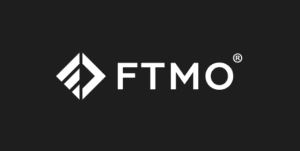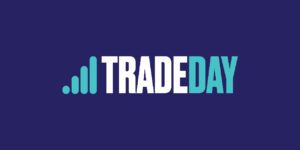FTMO vs TradeDay: Elite Prop Firms Comparison
Introduction
FTMO and TradeDay represent two of the leading proprietary trading firms offering funded trader programs. FTMO, established in 2015, has built a strong reputation for its transparent challenge process and generous profit splits, boasting an impressive 4.6/5 rating on Trustpilot from over 4,500 reviews. TradeDay, a newer entrant founded in 2020, has quickly gained popularity for its simplified evaluation process and flexible trading conditions, maintaining a solid 4.3/5 Trustpilot rating from over 900 reviews. Both firms provide traders with the opportunity to access substantial capital without risking their own funds, but they differ significantly in their approach, evaluation methods, and overall trader experience.
Quick Comparison
|
| Feature |
FTMO |
TradeDay |
|
 |
 |
| Founded |
2015 |
2020 |
| Trustpilot Rating |
4.6/5 (4,500+ reviews) |
4.3/5 (900+ reviews) |
| Profit Split |
80% (up to 90% with scaling plan) |
80% (fixed) |
| Maximum Account Size |
$400,000 |
$200,000 |
| Evaluation Process |
Two-phase Challenge |
Single-phase Evaluation |
| Review |
Read full review |
Read full review |
Program Types – Which experience fits your goals?
|
| Program |
FTMO |
TradeDay |
| Standard Challenge |
Two-phase evaluation: Challenge (up to 30 days) and Verification (up to 60 days) |
Single-phase evaluation (up to 30 days) |
| Account Sizes |
$10,000, $25,000, $50,000, $100,000, $200,000 (can combine two $200K) |
$10,000, $25,000, $50,000, $100,000, $200,000 |
| Swing Account Option |
Yes, with weekend holding allowed |
Yes, with extended time for completion |
| Scaling Plan |
Yes, increase account by 25% after every 4% profit, up to 90% profit split |
No formalized scaling plan |
| Demo/Free Trial |
Free FTMO Challenge Demo account available |
7-day free trial available |
Assessment Criteria – How can you pass the test?
|
| Criteria |
FTMO |
TradeDay |
| Profit Target |
10% (Challenge), 5% (Verification) |
8% (Single phase) |
| Maximum Daily Loss |
5% of initial balance |
4% of initial balance |
| Maximum Overall Loss |
10% of initial balance |
8% of initial balance |
| Minimum Trading Days |
10 days in Challenge, 10 days in Verification |
5 trading days |
| Trading Hours Restrictions |
No trading during major news events |
No specific restrictions, but risk management advised during news |
| Weekend Holding |
Only with Swing Account option |
Allowed on most account types |
| Position Closing |
All positions must be closed by the end of evaluation phase |
All positions must be closed before evaluation completion |
Fees and Pricing – How much will you pay?
|
| Option |
FTMO |
TradeDay |
| $10,000 Account |
$155 |
$129 |
| $25,000 Account |
$250 |
$229 |
| $50,000 Account |
$500 |
$429 |
| $100,000 Account |
$1,000 |
$829 |
| $200,000 Account |
$1,980 |
$1,599 |
| Refund Policy |
Full refund if Challenge is passed |
No refund of evaluation fee |
| Coupons |
Coupon Code |
Coupon Code |
| Review |
Read full review |
Read full review |
Platforms/Tools – What can you use?
|
| Feature |
FTMO |
TradeDay |
| Trading Platforms |
MetaTrader 4, MetaTrader 5, cTrader |
MetaTrader 4, MetaTrader 5 |
| Mobile App Support |
Yes, mobile versions of all platforms |
Yes, MT4/MT5 mobile versions |
| Performance Dashboard |
Comprehensive metrics, advanced analytics |
Basic performance tracking |
| Trading Journal |
Built-in journal with trade analysis |
Basic trade history |
| Educational Resources |
Webinars, tutorials, trading tips |
Basic guides and FAQs |
| API Trading |
Supported |
Limited support |
Available Options/Products
|
| Option |
FTMO |
TradeDay |
| Trading Instruments |
Forex, Commodities, Indices, Stocks, Crypto |
Forex, Commodities, Indices, Crypto (limited stocks) |
| Account Currencies |
USD, EUR, GBP, AUD, CAD, etc. |
USD, EUR, GBP |
| Leverage Options |
1:100 (Standard), 1:30 (Swing) |
1:100 (all accounts) |
| Custom Challenges |
Available for institutional clients |
Not available |
| Trading Styles |
Day trading, Swing trading, Scalping, Position trading |
Day trading, Swing trading, Scalping |
Technical Capabilities/Performance
|
| Feature |
FTMO |
TradeDay |
| Server Location |
London (UK) and New York (USA) |
London (UK) |
| Execution Speed |
Average 12ms |
Average 18ms |
| Spreads |
Raw spreads + small commission |
Raw spreads + commission |
| Slippage Management |
Advanced order routing system |
Standard order routing |
| Trading Hours |
24/5 with weekend support |
24/5 with limited weekend support |
| Support Responsiveness |
Average response time: 2-4 hours |
Average response time: 6-12 hours |
Payout and Withdrawal Terms
|
| Feature |
FTMO |
TradeDay |
| Payout Schedule |
Every 14 days (after first month) |
Monthly (first payout after 30 days) |
| Minimum Withdrawal |
No minimum |
$100 |
| Payout Methods |
Bank transfer, Skrill, Neteller, Bitcoin, PayPal |
Bank transfer, Skrill, Bitcoin |
| Processing Time |
1-3 business days |
3-5 business days |
| Fees |
No fees (external provider fees may apply) |
$20 for bank transfers, free for other methods |
Conclusion and Final Recommendation
|
| Key Element |
FTMO |
TradeDay |
| Strengths |
Established reputation, two-phase system providing better preparation, scaling plan, comprehensive analytics, full refund after passing, wider range of tradable assets |
Simpler one-phase evaluation, lower pricing structure, more lenient weekend trading policy, less stringent minimum trading days requirement |
| Weaknesses |
Higher entry costs, more complex evaluation process, stricter trading rules |
Newer company with less track record, no scaling plan, more limited educational resources, no challenge fee refund |
| Best For |
Experienced traders seeking larger account sizes, traders wanting comprehensive analytics and education, those preferring a well-established reputation |
Newer traders looking for simpler evaluation, budget-conscious traders, those wanting fewer minimum trading days requirements |
| Final Grade |
4.7/5 |
4.3/5 |
| Discount Codes |
Coupon Code |
Coupon Code |
| Review |
Read full review |
Read full review |
FAQ
What makes FTMO popular among users?
FTMO’s popularity stems from its transparency, established track record since 2015, and trader-friendly features. Traders particularly value the full refund of the challenge fee upon passing, the comprehensive performance analytics dashboard, and the attractive scaling program that can increase both account size and profit split percentage over time. The two-phase challenge system, while more demanding, is seen as better preparation for real-world funded trading, and FTMO’s extensive educational resources help traders improve their skills throughout the process.
How does TradeDay differ from other similar organizations?
TradeDay distinguishes itself with its streamlined single-phase evaluation process, which many traders find less stressful and more straightforward than multi-phase challenges. Their pricing structure is generally more affordable than competitors, making funded trading accessible to those with smaller budgets. TradeDay also offers more lenient trading conditions regarding weekend positions and fewer required trading days. While newer to the market, they’ve gained recognition for their responsive customer support and straightforward approach that eliminates unnecessary complexity from the funded trader journey.
Which firm offers better profit potential for traders?
Both firms offer the standard 80% profit split for traders, but FTMO edges ahead with its scaling plan that can increase the profit split to 90% for consistent performers. FTMO’s larger maximum account size ($400,000 vs TradeDay’s $200,000) also provides higher earning potential for successful traders. However, TradeDay’s lower entry costs and simpler evaluation process might allow some traders to get funded more quickly, potentially leading to earlier profit generation. The best choice depends on your trading style, capital availability, and whether you prioritize maximum potential earnings or quicker access to funding.
Are there significant differences in trading conditions between FTMO and TradeDay?
Yes, there are several notable differences. FTMO imposes stricter trading rules, including 10 minimum trading days per phase and restrictions during major news events. TradeDay requires only 5 minimum trading days and has fewer news trading restrictions. FTMO’s standard challenge has a 10% profit target in phase one and 5% in phase two, while TradeDay requires an 8% profit target in its single phase. FTMO offers more sophisticated analytical tools and platform options (including cTrader), while TradeDay focuses on MT4/MT5. Execution speed is generally faster with FTMO, but TradeDay offers more consistent leverage across all account types.
Which firm is better for beginner traders?
For most beginners, TradeDay offers advantages that make the funded trader journey more accessible. Their single-phase evaluation is less complex to understand and execute, while their lower pricing structure reduces the initial financial commitment. TradeDay’s more lenient trading requirements (fewer minimum trading days, simpler rules) can be less intimidating for those still developing their trading strategies. That said, FTMO offers superior educational resources and analytics that can accelerate a beginner’s learning curve, and their two-phase system, though more demanding, provides better preparation for successful long-term trading. Consider starting with TradeDay if budget and simplicity are priorities, or FTMO if you value comprehensive education and are prepared for a more rigorous challenge.
How was this 2 companies Comparison Created?
1. We Collect
Our comparison begins with extensive data collection from multiple authoritative sources. We analyze official information from both FTMO and TradeDay websites, examining their program terms, fee structures, and technical specifications. We supplement this with real user experiences from Trustpilot, TrustScore, and specialized trading forums. Additionally, we interview active traders who have experience with both platforms and consult industry experts who understand the nuances of proprietary trading firms and their evaluation methods.
2. We Examine
Our expert team thoroughly verifies all collected information, cross-referencing data points across multiple sources to ensure accuracy. We conduct hands-on testing of both platforms’ demo accounts to evaluate user experience, platform stability, and execution quality. We analyze historical changes in each company’s policies and offerings to understand their evolution and responsiveness to trader needs. This methodical examination helps us identify both obvious differences and subtle nuances that might impact your trading experience.
3. We Score
Our scoring methodology evaluates each company across seven key categories: reputation and reliability (20%), trading conditions (20%), platform and tools (15%), account options and flexibility (15%), cost structure (10%), support quality (10%), and payout terms (10%). Within each category, we assess multiple factors using a standardized rubric. Final scores are determined through a weighted average of category scores, with additional considerations for unique strengths and limitations that might benefit specific trader profiles.
4. You Choose
Armed with our comprehensive comparison, you can make an informed decision based on what matters most to your trading goals. Consider your trading style, risk tolerance, available capital, and experience level. If you’re an experienced trader seeking larger account sizes with a well-established firm, FTMO may be your best choice. If you prefer a streamlined evaluation with lower entry costs, TradeDay might better suit your needs. Remember that the “best” option varies based on individual circumstances—use this comparison as a guide, but ultimately choose the firm that aligns with your specific trading journey.
View More Elite Prop Firms Compared: Alpha Capital vs Crypto Fund Trader





